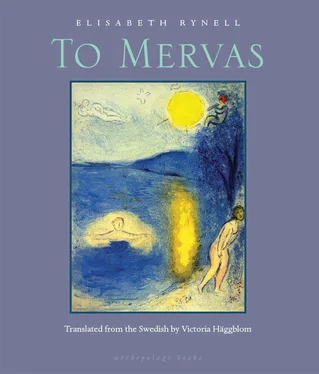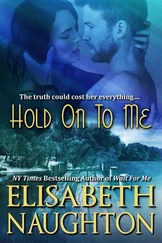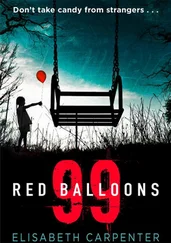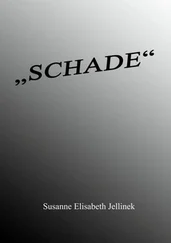Mom had evidently planned the move for some time, because the apartment was already furnished when we arrived. There was a worn sofa bed and a couple of plain beds, a kitchen table, some chairs and stools, a dresser, and a big brown radio with its green dial eye.
Mom probably hadn’t asked her family for help before because she felt ashamed. After all, she’d been lucky to enter a good marriage with a well-educated man from a better family than her own. The way everyone saw it, she ought to be happy and content. The marriage to Dad had distanced her from her family, and as the years went by, the distance kept growing, especially because Dad didn’t think Mom’s relatives were good enough for him and his children. It was probably the doctors she met in the hospital after my sister’s birth who pushed her to get in contact with her family and tell them what was going on. All of us siblings immediately fell in love with our uncle. He was very tall and fat and had lots of amiable lines around his eyes. He constantly made jokes and laughed more during the move than our dad had done during our entire childhood. And he was a father too, we found out. There were fathers like him in the world also.
It’s the Feast of the Holy Innocents today. Outside, it’s thawing and suddenly the snow has no resonance or sparkle. All afternoon, I stood in front of the bathroom mirror looking at my face. Looking into it. I was searching for something in it, I don’t know what. Perhaps a bit of life, an ounce of longing somewhere in the depth of my eyes. But my face was indecipherable. It expressed everything and nothing. Most of the time it was ugly, but for brief moments it was beautiful. It never ceased to be invasive; painfully, embarrassingly invasive. Like someone who comes to bother you. A stranger at once mysteriously intriguing and revolting. I just stood there, unable to step away from the mirror.
Many artists have been known to paint their own portraits; some become obsessed with it. I can understand why. They’re trying to fix on the canvas the one face that always eludes us more than any other. Perhaps our own face isn’t really available to us because it eludes us. On the contrary, it turns away from itself and toward others. Way back in the past, when no mirrors existed except for the occasional shaky reflection in a body of water, it was the people surrounding you who became your mirror. They reflected your face back to you, responded to it. I sometimes wonder if people were different back then. You’re so alone in front of the mirror, alone with your own perplexing face. Perhaps our faces want to tell us that the person who lives unseen has lost his face. That our faces are there for others, it is a language, perhaps even everyone’s primary language.
I’ve probably lost my face. That’s what life has done to me; it has driven me deeper into loneliness. My face has become unreadable, not only to myself but also to everyone who sees me. It has become an extinct language. I thought of Kosti there in front of the mirror. I wondered if he’d be able to give me my face back.
My years with the boy made me think a lot about this, about faces. His great loneliness was hidden precisely because he was missing his own face; he couldn’t reach anyone through it, couldn’t reach outside himself and was forced to remain inside his own darkness. Like being born without a body, I sometimes thought. A diabolic impossibility. And I, the mother, who finally couldn’t endure his loneliness.
I had a terrible dream last night. I dreamt there was a war. My apartment was on fire and I stood on the street outside with a group of other people and together we saw the fire rising against the night sky and enveloping the entire neighborhood in worrying clouds of thick, brown smoke. Soon after this I found myself on a military airfield. It was early dawn. Muddy roads passed between big, depressing sheet-metal hangars. I was filled with an incredible anguish. Groups of soldiers passed me by and harsh voices gave orders all around me, commands, deadly words. Suddenly, Kosti’s father came up to me. He was dressed as an officer and he gave me a small piece of paper.
“Go to hangar G,” he said sternly. “You’re going to the front.”
Hangar G, the front. My legs felt weak and I stood there, confused, with my little piece of paper. I didn’t know in which direction to go. Then I found myself in a dilapidated locker room, where grim guards dressed me in a uniform and hung weapons, ammunition, and a pack on my back. They pushed me out to a giant hall where soldiers were lined up, and I understood that I’d come to hangar G. I was placed in the first row of soldiers, among those who’d be the first to leave. I’d never felt such intense fear before. When I looked around, I spotted Kosti’s father and right behind him stood Kosti, in civilian clothes. They both looked straight at me, and when I screamed that I didn’t want to go to the front, Kosti’s father appeared and said that I must behave myself, that I had no choice. I had to go to the front and the plane that would take me there was about to take off.
I woke up before boarding the plane. My anxiety was like a spear thrust through me and I was soaked in sweat. When I’d gotten out of bed and had my first cup of coffee, I knew that I had to get myself to Mervas. Not because it was “the front” or to escape “the front” — I wasn’t yet in any shape to analyze the dream. It was more of an insight that had come to me, a voice that the night had stripped bare, and this voice knew. I had to go to Mervas. I’ve known it the entire time; that’s how it has to be, that’s what has to happen.
We actually parted as enemies, Kosti and I. There’s no other way to describe it. Perhaps love creates in us an obsession of wanting to be loved completely and entirely, into every part of us, every corner of our being. But when I became increasingly determined to drag Kosti into my darkest, worst stinking nooks and crannies, he turned away from me. He immediately became hard and impenetrable. I had crossed a boundary and his otherwise mild demeanor changed, and he became dry and barren and harsh. A stony desert. And he forced me out of his life; there was never a way back. His very words pushed me away. He didn’t have to raise his voice, didn’t even have to scream. The harsh and dry way he spoke to me was enough. He drove me away from him with those words, out of the apartment, the little dorm room we had shared. That was all it took. I was already crushed.
I slept in my car that night, and the following day I moved to my sister’s. I didn’t dare return to him; I was afraid to hear that voice. To see the lack of love in his eyes. I couldn’t take it, not from him, from Kosti, who had seen me, received me, and renamed me. I was also afraid of being held accountable, of being reminded of the person I didn’t want to be, the one I wasn’t. To meet myself in meeting him.
We argued that night. It was worse than that; it turned into a scene. But before we started arguing we’d had a really nice dinner together. It was actually our celebration dinner, the last in the apartment. In a few days we were going to the Orkney Islands and before that we had to pack, move out, store our things. This was the last peaceful night at home before the big moving and traveling chaos would begin.
After dinner, we were sipping the last of the wine and fantasizing about the upcoming year we’d spend on Sanday, an island northeast of the Orkney Islands. We talked about the ocean and about the fall and winter storms, about the uninhabited skerries and the megalith burial sites we would study. Everything seemed so incredibly exciting. We hardly dared believe that we would be there in a few days and then stay there an entire year. We were both hopelessly romantic. We described images to each other of how the raging storms in a kind of violent act of love ravaged the flat, rocky islands with their sparse vegetation. Roaring, the storms would press and wail against the tiny houses, which mostly resembled orderly stone cairns. We described how the wind held the island landscape in its grasp out there, how it scraped and tore at the yellowing grass. The salt would penetrate the cracks in the small cottages, become mortar in the stone walls, and glisten like crystals in the curly wool of the sheep. We could see ourselves there, walking close together through the storm, struggling to stay upright and screaming to each other to be heard over the din from the sea. Finally, we’d have to throw ourselves down on our stomachs and lie there, pressed to the ground, with our lungs completely filled with air while the hard wind kept moving through grass and twigs.
Читать дальше












